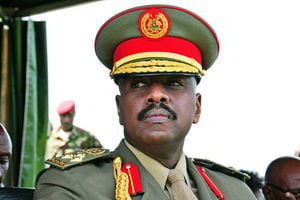
Author: Moses Khisa. PHOTO/FILE
The owl of Minerva spreads its wings only with the falling of the dusk’ was an instructive line by the great German philosopher, Georg Wilhelm Friedrich Hegel. The owl of Minerva was believed to be the goddess of knowledge, wisdom and love. She takes off only at the end of the day in display of wisdom after much activity.
History and hindsight offer powerful lessons. But it is one of the most tragic ironies of humanity that the lessons of history are easily forgotten, misdeeds and mistakes of the past are repeated! After nearly 40 years of Mr Museveni’s unprecedented grip on Uganda, the country is entering dusk.
The sun has to set at some point, sooner than later. It is a matter of time. In recent years, Ugandans have come to contend with the false promises of 1986, the dashed hopes, the sad realisation that the so called evil regimes that preceded 1986, with all their wrongs and excesses, at a minimum represented some patriotic cause and the public good in stark contrast to the individualised pillaging of the current rulers.Quite strikingly, the wisdom of dusk, after so much throughout the day, continues to elude the rulers perhaps precisely because the owl spreads its wings rather too late.
Change of direction is possible, only that a group so slashed with power is incapable of reading the signals and interpreting the odds. Or maybe they do? After fuelling a frenzy, creating so much chatter about a supposed imminent takeover from the father, Uganda’s Chief of Defence Forces (UPDF) recently announced on Twitter that he will not be a candidate in the 2026 presidential elections.
In a normal and serious country, such an announcement by officer in uniform is unthinkable.
Since at least 2022, we have come to expect a flurry of Tweets unleashed at different times, often coming late in the night and with language and content that betray an unhinged character.
From a Four-Star General, now elevated to the military’s highest office, in fact arguably the most powerful position in the country, only second to that occupied by his father and command-in-chief, those Twitter comments have been Uganda’s biggest political story of the past few years. Regime apologists and apparatchiks discounted previous outlandish Tweets, rather disingenuously assigning them a ‘made-in-jest’ label or as not to be read literally, so perhaps in the same vein we may as well not take seriously the latest announcement that the son won’t seek the father’s job in 2026.
At any rate, the stakes remain wildly high, incredibly worrying. Much of the respect and credibility the Uganda People’s Defence Forces enjoyed from Ugandans, even among regime critics but who are nevertheless invested in the national cause, has dissipated with such a senior army office making reckless and ludicrous comments.
MUST READ: The perils of Museveni succession politics
No accountability.Rather than be called to order or subjected to the strict disciplinary creed that characterises armed forces anywhere in the world, the errant person instead got promoted and was ultimately handed the most powerful military position! The much vaunted professionalism of Uganda’s army has been greatly imperilled by the statements of the very person now at the helm as the overall commander.
The collage of actions and Twitter statements of the First Son alone make the path to Uganda’s presidential succession treacherous, but there was already enough complication. For a country never to have experienced peaceful and proper transfer of power, after more than half-century of independence, once the constitutional safeguards intended to facilitate that process were dubiously thrown out, most recently in 2017 with the removal of the age-limit provision, we had crossed the Rubicon.
Mr Museveni threw all caution to the wind. The trap of power, or perhaps more aptly the curse of power, took over. For someone with an exaggerated messianic mission to purportedly ‘liberate’ Uganda from its many problems, the thought of peacefully relinquishing power most likely ceased to make sense. Yet, in whatever form and perhaps utterly unexpectedly, the moment of reckoning will arrive. History has a way of unfolding randomly, often with no announcement or warning shots, defying predictions and quashing expectations.
Unless there is some magical plan unknown to the public, which the authors can efficiently execute, the change from Mr Museveni to whoever shall take over will in all likelihood be a turbulent moment.
The long-standing latent factionalism in intelligence and security is ominous. The evident wrangling in the ruling party makes matters worse. We have a rudderless Cabinet. There is an official vice president and the real vice president who, in fact, is a co-president of sorts.
The leadership in parliament is, to put it mildly, underwhelming. Parliament as an institution is hugely denuded. The Judiciary is an even worse state! For Ugandans of deep religious faith, of which your columnist is not one, the recourse is to hang onto the healing hand of the Almighty, the belief that God will make a way. I hope so.



